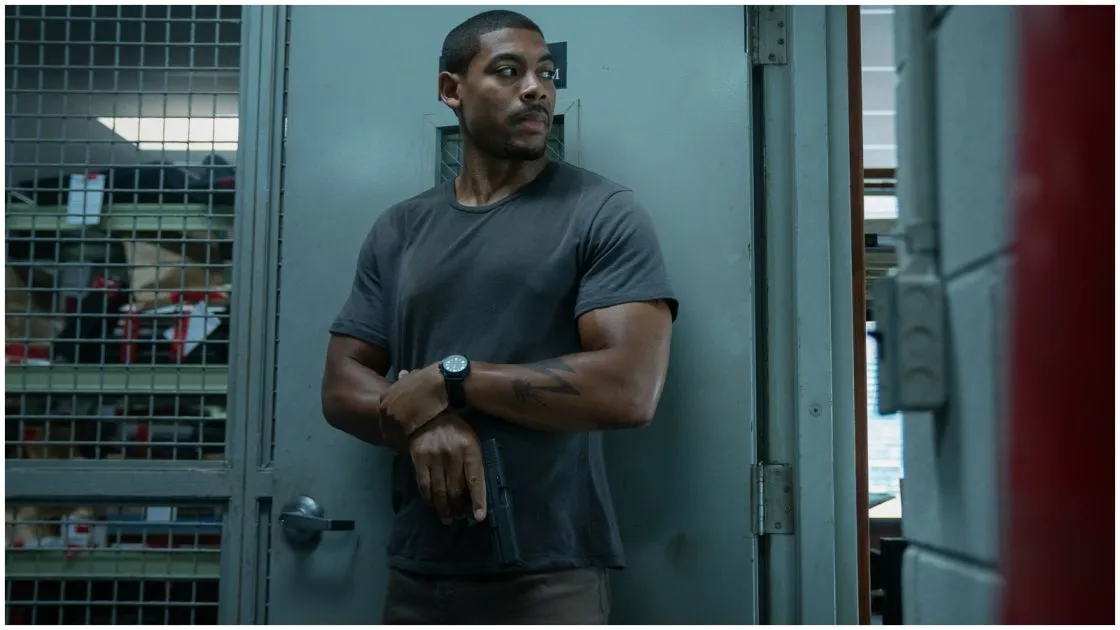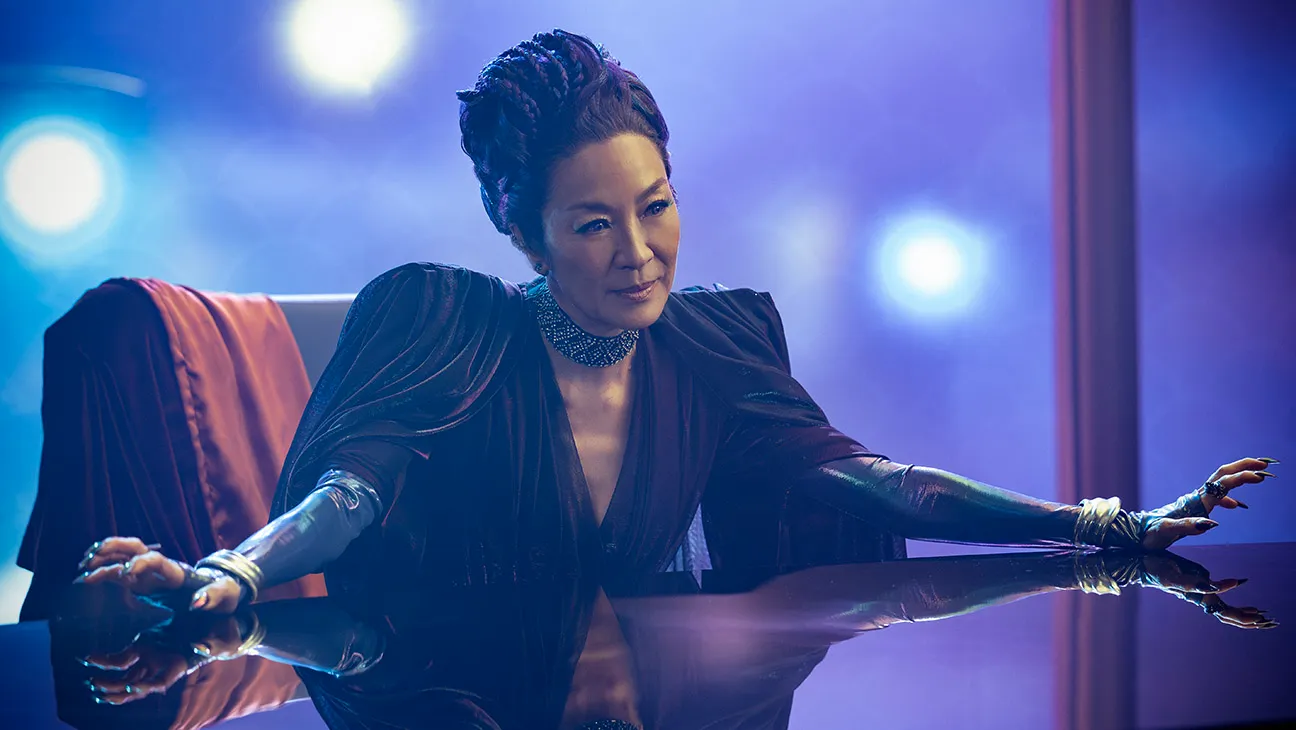The third feature film by Truong Minh Quy, which debuted at Cannes and is prohibited in his native Vietnam, masterfully overlays a tragic romance over the shattered past of a people.
A sleek figure appears from one corner of the frame and glides to another in the opening minutes of Truong Minh Quy's third feature film, Viet and Nam. He appears to be an apparition, a surreal being trudging across a completely dark area. Around him, white flakes drift, speckling the pitch-black space like stars in the night sky. A more genuine scene emerges when the manufactured trance is broken by the piercing whining of a bell: Two men hastily put on their shirt buttons and get back to work.
Dreamy observation of passionate commitment and haunted history, Viet and Nam made its Cannes Film Festival debut in May in the Un Certain Regard sidebar before making its New York Film Festival debut this week. Its main characters, Nam (played by Pham Thanh Hai) and Viet (played by Dao Duy Bao Dinh), are lovers whose bond blossoms in the subterranean passageways of a northern Vietnamese mine. The questions that haunt the couple when Nam says he's leaving the nation are the central theme of the first part of the movie. Soon after 9/11 in the early 2000s, Nam intends to hire a trafficker to get him out of the country via a shipping container. Viet is unsettled by the news and is forced to consider what life would be like without his sweetheart.
Parallel to this devastating story is the existential story of a country so overtaken by the aftermath of war that even the terrain, riddled with unexploded bombs, is a menace. The fact that Quy's film has been outlawed in Vietnam (perhaps due to the director's "dark and negative" depiction of his native nation) illustrates how sensitive these still-open wounds are. Quy (The Tree House) uses the relationships between Nam, his mother Hoa (Nguyen Thi Nga), his deceased father, and his father's friend Ba (Le Viet Tung) to root philosophical themes about historical trauma. He skillfully tackles a well-known subject by examining how relationships in the present are impacted by historical disruptions: how conflict has a lasting effect on witnesses and their offspring.

Nam's body and subconscious are haunted by the memory of his father, who was slain during the war, somewhere in the country's south, before Nam was even born. Throughout, Hoa makes comments about how much her son looks like the unburied soldier, who appears to him and his mother in dreams. Nam, who has never seen his father, is driven to discover where and how he died. So, before fleeing Vietnam, he sets out on a quest with Hoa, Ba, and Viet to locate the location of his death. Isn't it the how trauma, whether it be inherited or from conflict, affects living things? forcing us to dig and search?
Read Also: Review of the Rebel Ridge
The most robust sequences in Vietnam and North Korea offer fresh perspectives on this gruesome lineage. They intertwine Nam's quest for his father with his connection with Viet, elucidating the younger man's determination to depart from Vietnam, even if it meant parting ways with this genuine love. Nam and his mother's back-and-forth chats demonstrate the psychological grip that the battle still has on them. Nam appears to be taken over by his father's ghost in a scene where he and his family are traveling in a jungle close to Cambodia. In a bizarre passage, he assumes the role of the fallen soldier and, using bits and pieces of things he's heard over the years, imagines his father's last moments in voiceover.
The relationship between Viet and Nam is a unique kind of dream, primarily realized in the mines where they exchange hopes and perfect their love. In collaboration with his cameraman Son Doan, Quy captures these moments with an open and sensitive touch. These moments are sensuous and remind me of the sex scene in Payal Kapadia's All We Imagine as Light, which did a similar good job of subtly conveying the joy of young romance.
With their nuanced chemistry, heartbreaking last sequence, and suitable sadness and humor, Hai and Dinh's portrayals of their characters make one wish Quy had given them more time to develop their relationship. The film's contemplative nature is enhanced by the director's (together with Félix Rehm's) liberation of the plot from linearity and manipulation of the events' sequence. However, individuals who are not easily influenced to follow associative thought patterns may find the method difficult to use. Additionally, it gives the relationship between Vietnam and Nam, which had a lot of memorable moments, a weird sense of secondary importance to the historical disinterment. Compared to Nam, so much about Viet is still unknown.
The guys are distinct enough to merit further description, even if the film implies that there is some interchangeability between the two actors (the end credits identify the roles as "Viet/Nam" and then list both performers). In any case, how does Viet feel about history, regardless of his relationship with Nam? It's possible that the tension might have subsided if the movie had been longer—it runs just over two hours. With Viet and Nam, Quy has achieved something truly remarkable. It is sufficient justification for remaining in its world.

.webp)





.jpg)



